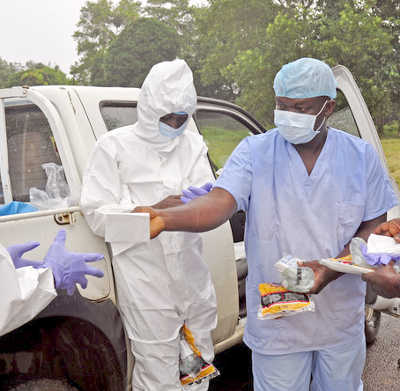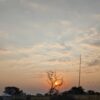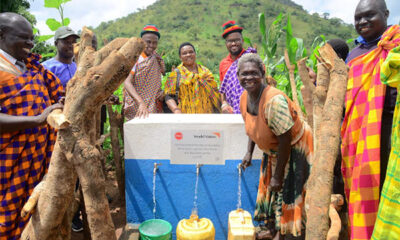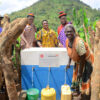Health
Ministry urges medics on Ebola protective wears

LIKE THIS: Uganda’s ministry of health has urged all health workers to stick to preventive gear like in the above photo
In a statement issued this week by Uganda’s Director General of Health Services Dr. Ruth Aceng, the ministry said it had reactivated all its Ebola District Task Forces aimed at identifying and containing any possible outbreaks of the deadly Ebola disease in Uganda.
“All health workers have been directed to strictly observe standard prevention and control measures in all health facilities,”Aceng added: “All health facilities have been directed to conduct orientation trainings on Ebola clinical presentation and infection control procedures for putting on protective wears.”
Aceng added that the ministry has set up and equipped an isolation facility at Grade B Hospital in Entebbe and is ready to receive and attend to any suspected case. This is in addition to a private medical centre that has been established at Entebbe International Airport for purposes of counselling and clinical screening of all suspects.
CAA has also reserved a standby ambulance with protective gear ready to respond to any emergency.
Aceng noted that the government has reinforced its screening services at Entebbe International Airport to cope with the high number of passengers.
“The screening services will continue to target passengers from West Africa Ebola ravaged countries either coming in directly or through connecting flights from neighbouring countries of Kenya and Ethiopia,” noted Aceng.
So far four people have been examined and tested after being suspected of suffering from Ebola but the ministry says all tests have turned out negative.
According to the World Health Organisation (WHO) Ebola is a haemorrhagic fever characterised with bleeding, headache, vomiting, fever, yellow signs. The fatality rate of Ebola is as high as 90%. Ebola is one of the world’s most virulent diseases. The infection is transmitted by direct contact with the blood, body fluids and tissues of infected animals or people. People at the highest risk of infection are health workers, family members and others in close contact with sick people and deceased patients.
The disease has ravaged West African countries of Guinea, Liberia, Sierra Leone and Nigeria with far reaching implications on their economies and ways of life. The World Health Organization (WHO) has called the outbreak in West Africa a global emergency and generated US$ 100m to help affected countries respond to it.
According to WHO, the disease has not affected as many people in Guinea where it started as much as it has in neighbouring countries like Liberia and Sierra Leon thanks largely to the high level of public awareness on the facts about the disease in the country. Lack of accurate information in Liberia is estimated to be reason for the high rate of cases currently standing at 834 out of which 466 have died. Misinformation about Ebola in Liberia is also thought to have led to patients escaping from isolation facilities this week and erroneously accused the government of using them to solicit for aid from developed countries. The government later said all those that had escaped had been identified and re-confined.
The government of Guinea has for example been distributing Soap and Chlorine to members of the general public.
Uganda has suffered four episodes of Ebola, with the most fatal being the first episode in 2000 which killed 224 people out of 425 cases. Among the victims was Lacor Hospital physician and administrator Dr. Mathew Lukwiya. He was the first physician known to have died of the disease in history.
Comments


















